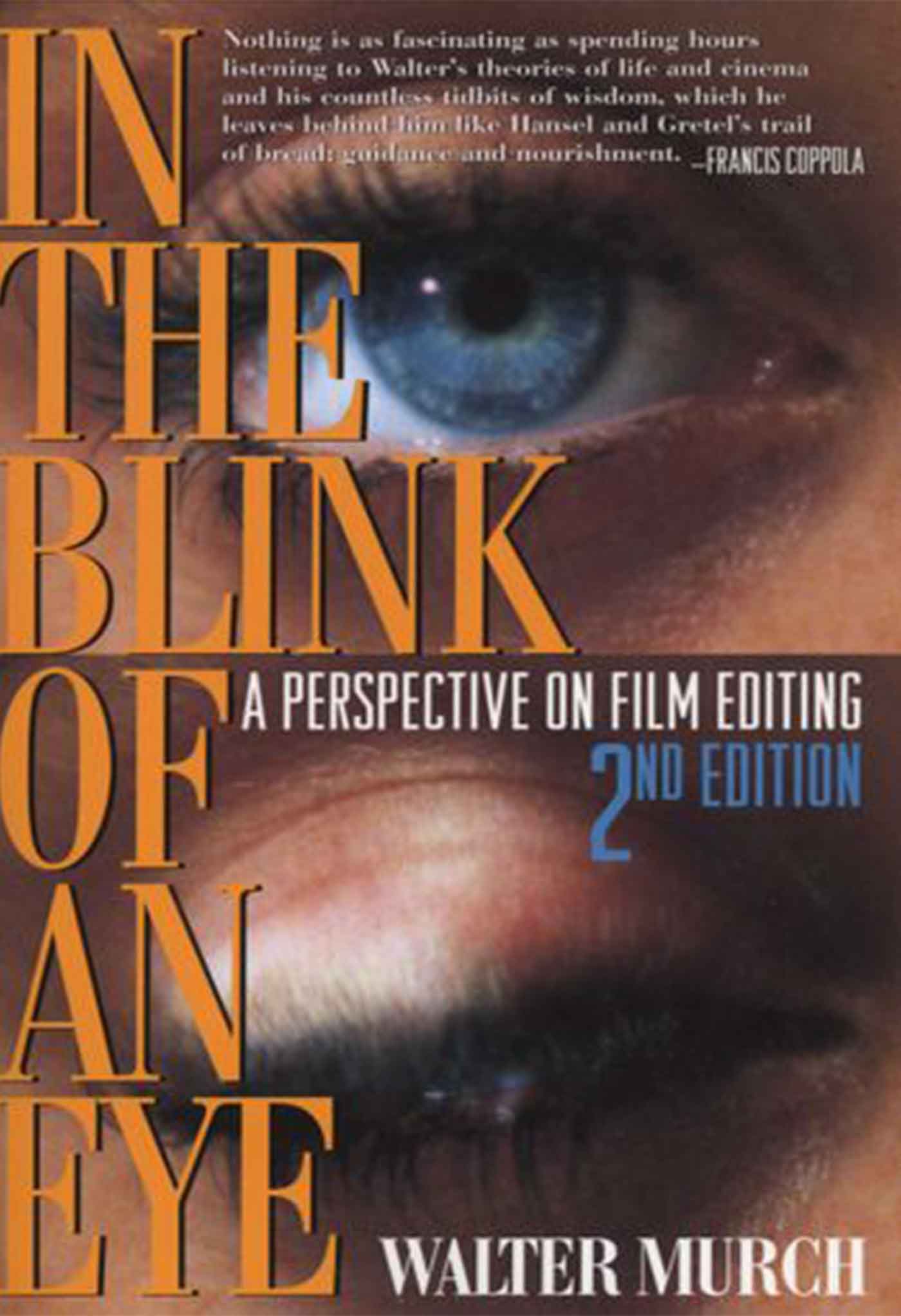If you aren’t familiar with Walter Murch, he is an absolutely exceptional film editor. You’ve seen his work. He’s best known for editing the significantly unruly APOCALYPSE NOW, as well as THE GODFATHER PART III, but also GHOST, as well as THE UNBEARABLE LIGHTNESS OF BEING. He’s also super-fucking smart. He has the heart of a philosopher and is so inquisitive and thoughtful in a way that I can only extoll as someone that is more than happy to mentor folks.
IN THE BLINK OF AN EYE is Murch imparting all of his editing knowledge, because he’s that generous of an individual.
I think about this book at least once a month. While it’s dense with all sorts of minutiae about editing — he spends A LOT of time discussing the difference between vertical editing (via Moviolas and Steenbecks) and digital editing in ways that I think no one nowadays consider — it’s still exceptionally entertaining and enlightening.
I was lucky enough to straddle that strange film divide, in that I did edit on actual film but also edited on AVID systems.
While I am a computer nerd — I grew up with a keyboard in my hand and I still have the PCjr to prove it — there is fucking absolutely nothing like editing physical film.
Digital is disposable. You can shoot for hours and hours.
Physical film is not. You get a spool of film. You have to cultivate an eye for lighting, for camera position, for ensuring you are methodically shooting for the best verve of storytelling, that you aren’t violating the 30 degree rule, that you’re following through with the right angles of a shot-reverse shot, that you’re getting the best coverage while still being mindful of your film budget.
You do not have any way to see your work apart from what is right in your eyes, the space you inhabit.
Then once it’s shot, you have to string out your workprint — which I’ll note can take far too long to process! — and thread it through a reel-to-reel workbed and squint at the tiny screen projecting your hard work, then find your mark, unspool the film and splice it with a razor.
It is often a grueling process. Splice after splice for hundreds of feet of footage. Film cement is pasted over and over again. Your oily fingers often taint what cost way too much money to film.
Digital editing disposes of all of that and, what Murch notes, it’s easier, but far less intimate; footage goes from being something precious to transitory and almost wasteful; as if it’s taking performers and labor for granted.
I digress.
What keeps popping in my mind is what Murch titled his work over: IN THE BLINK OF AN EYE.
Murch realized pretty quickly that one blinks after the completion of a thought.
He also realized that narratively, that’s organic to storytelling.
Consequently, he found himself innately cutting whenever he saw a great actor blink.
Bad actors? They flutter their eyes. They’re far too focused on recalling lines, too distracted by other actors or the surrounding sets. They do not inhabit their roles.
Great actors have a visual intensity. They become who they’re asked to. They blink naturally because they’re on the same wavelength.
This doesn’t just apply to film, but also real-life. For better or worse? Once you’re imparted with that knowledge? It is very easy to tell who is taking in your words, and who simply doesn’t give a shit and lives in their own little world that you are not a part of.
You’re probably familiar with the phrase that the eyes are windows to the soul, and I do believe that, but eyes are also so, so very complex. They convey so much, perhaps more than any other facet of the human body. There’s a reason why poker players often wear sunglasses; it’s so very hard to lie when your eyes are willing to betray you.
Murch gets that, which is why he’s such an amazing talent, and the fact that he’s willing to let the world into his observations and knowledge, well, be thankful and perhaps you — like me — will retain his words and wisdom.
